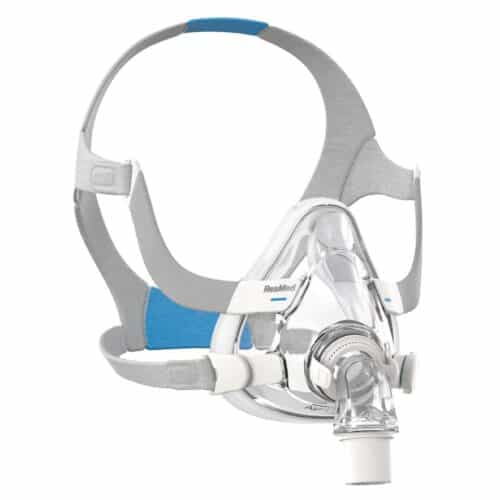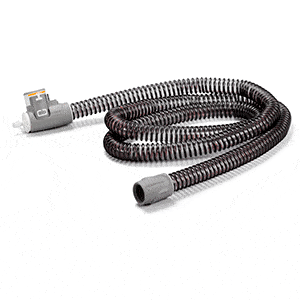Get 10% off your order!
Sign up below for PAP’s Newsletter, and keep an eye on your inbox for a one-time code. Offer not available on sale items.
Truck drivers spend many hours on the road, and many of them find it hard to maintain a quality sleep schedule. Unfortunately, poor quality sleep can become dangerous as it can interfere with one’s concentration while operating a large vehicle.
Sleep apnea is one of the main factors behind sleep quality among truck drivers.
This medical sleep disorder is characterized by interrupted breathing due to restriction of adequate airflow during sleep. The upper airway muscles relax, thus interrupting breathing and resulting in various health risks and lack of quality sleep.
This post explains more about the risk, testing, and treatment of sleep apnea for CDL drivers.
Symptoms of sleep apnea include trouble concentrating, forgetfulness, drowsiness, and persistent headaches. Drowsy driving slows reaction time, and truck drivers may be at risk considering their vehicle takes more time to stop completely. Therefore, untreated sleep apnea can affect daytime performance and alertness.
People with sleep apnea may experience a period of shallow breaths or repeated breathing pauses for ten seconds at any time. When the body stops breathing due to this disorder, it keeps waking itself up to continue breathing, a cycle that can occur several times in a single night. Consequently, the patient fails to reach the most restful stages of sleep. An individual might think they had a full night’s sleep, but in reality, their mind and body would still be exhausted.
When fatigue kicks in during the day, most wouldn’t know that sleep apnea is the culprit.
The National Highway Traffic Safety Administration states that drowsy driving results in about 100,000 crashes reported to the police every year. Commercial truck drivers with untreated sleep disorders like sleep apnea are among those more likely to drive while drowsy.
Truck drivers can take poorly calculated reactions when driving or find it hard to focus their eyes or stay awake. This increases the risks of being involved in or causing a crash.
Although the U.S. Department of Transportation requires truck drivers to get a medical examination before getting a CDL license, sleep apnea testing is not mandatory. It is the medical examiner who determines whether a driver needs the test. However, the Federal Motor Carrier Safety Administration (FMCSA) may deem a driver as medically unqualified to operate a commercial truck if they have any sleep disorder until it is medically addressed.
The DOT does require that truck drivers get a medical and physical examination in order to hold a CDL license. The medical examiner is the one who decides if the driver needs sleep apnea testing. DOT says that it’s up to your medical examiner whether or not your medical condition will interfere with your driving.
If diagnosed with moderate to severe sleep apnea, you are considered unsafe to drive and will lose your CDL until you’re treated for sleep apnea and deemed safe to drive again by your medical examiner.
Typically, physicians measure the body mass index (BMI) of truck drivers. If it is found to be 30 or higher, a sleep disorder test is required.
Absolutely! While the CPAP compliance may vary from state-to-state, as long as you are actively managing your Sleep Apnea and a medical examiner confirms you are of no danger on the road, then you are free to cruise the highways and byways.
Just don’t stop your CPAP therapy, for risk of having your CDL revoked!
According to the Federal Motor Carrier Safety Administration (FMCSA), if you are a Property-Carrying Driver, you may drive a maximum of 11 hours and only after 10 consecutive hours off duty. As for Passenger-Carrying Drivers, you may drive a maximum of 10 hours and only after 8 consecutive hours off duty.
With long hours on the road, sometimes including the use of stimulants to stay awake for long stretches, truck drivers are some of the most susceptible professionals to be at risk for OSA. This, coupled with an often sedentary lifestyle make these individuals at such high risk that many states require CPAP therapy in order to even be able to drive a commercial motor vehicle (CMV) in interstate commerce.
Due to the risks involved with sleep apnea, businesses should consider a sleep apnea program for their employees. Most trucking companies may restrict truck drivers with moderate-severe sleep apnea from operating their vehicles until the disorder is addressed. Otherwise, if the condition is left untreated, a company can lose competent employees or suffer asset losses due to sleep apnea-related accidents.
Medical professionals recommend lifestyle changes such as quitting smoking or losing weight for mild sleep apnea cases. However, if the signs and symptoms fail to improve or a patient has moderate-severe sleep apnea, Continuous Positive Airway Pressure (CPAP) can help significantly.
CPAP is a sleep apnea treatment that involves delivering air pressure through a mask as you sleep. The air pressure exceeds that of the surrounding air and is adequate to keep the upper airway passages open, thus preventing sleep apnea.
At cpapRX, we partner with businesses across a wide selection of industries, where proper sleep health and clinical sleep support are required for job safety and peak employee performance. Whether you’re an owner, or an employee exploring health and wellness programs for your team, our Sleep Partner Program provides a unique and specialized pathway to providing sleep therapy for your team.
You can also shoot us an email at sleeptight@cpaprx.com, call us at 866-318-4548, or Live Chat with us right on the site.


Sign up below for PAP’s Newsletter, and keep an eye on your inbox for a one-time code. Offer not available on sale items.
SUBSCRIBE TO OUR NEWSLETTER Receive exclusive offers & insightful articles to enhance your sleep.
Search by product name, type or brand.
